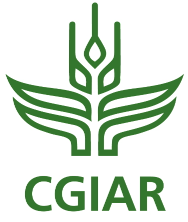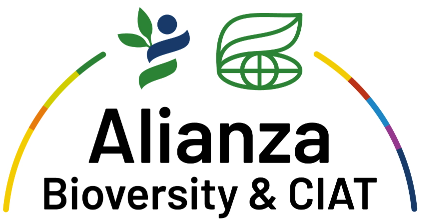FLAR seeks to achieve self-sufficiency in rice production in Panama
Source: https://panoramaeconomicopma.com/locales/flar-busca-alcanzar-autoabastecimiento-en-produccion-de-arroz-en-panama/

For experts, the country has the potential to increase rice yields in the short and medium term, by 20%, 30%, and more in the long term, or by 50% or more. Furthermore, they consider that by making improvements in the cultivation process, from the adaptation of the soil to all agronomic management, to harvest, it is possible to obtain yields above 120, even 130 quintals in dry land in the country, and which are currently low.
In this sense, global food vulnerability due to the impact of climate change, which affects the prices of agricultural products, along with other factors that affect supply chains, is an opportunity for a technological transformation that allows Panama to achieve self-sufficiency. in rice production, stressed today agronomist Eduardo Graterol, executive director of the Latin American Irrigated Rice Fund (FLAR).
According to Graterol, a representative of the organization based in Cali (Colombia), an entity that generates and disseminates knowledge to improve productivity in the field, highlighted the potential in the disparate scenario in Latin America due to the existence of self-sufficient countries in the supply of cereal to its population, while others do not, including Panama.
“In Panama last year and even this year, the effect of high temperatures has been evident, not only in agriculture; but in people’s lives, and that is resulting in lower agricultural and livestock production, and has also implied impacts on the quality of products and costs, because under these conditions the cost of food increases due to the reduction of areas and scarcity of products,” explained the expert when graphing the moment.
Among the factors that affect supply chains, he also mentioned agricultural policies, not only of the country, but of other countries that supply food, and which ultimately end up affecting buyers, and, in addition to specific effects, such as the climate crisis, the crisis of war, or abnormalities in logistics chains.
From the perspective of the executive director of FLAR, there is a vulnerability that makes the country’s self-sufficiency more essential, even more so, in a fundamental food for the population such as rice.
The expert highlighted his perspective after the participation he had on January 26, together with engineer Luciano Carmona, leader of the FLAR agronomy program, at the beginning of the training sessions of the National Bank of Panama, on a farm in the district Panamanian from La Pintada, in the province of Coclé, with the underlying theme: “Climate Change, Mitigation in Agriculture.”
The specialists presented to producers in the area, in the northwest of the country, to other people related to agriculture, as well as to representatives of the board of directors of the National Bank of Panama, the pilot project to transform rice production in Panama, with You aim to produce more rice with fewer inputs, and to make better use of resources, including water.
“It is a proposal that we are making to the country, where rice is a fundamental food, and the National Bank gives us the opportunity to make the proposal known and to manage the necessary resources to be able to implement the project in this country,” Graterol highlighted. about this participation.
POTENTIAL
The executive director of FLAR stated that Panama has the potential to increase rice yields in the short and medium term, by 20%, 30%, and more in the long term, or by 50% or more.
He pointed out that dryland yields in the country are low, even compared to other countries in the region, so he is perhaps talking about 80, 90 quintals per hectare, and for some producers a little over 100 quintals per hectare.
Graterol highlighted that they have found that by making improvements in the cultivation process, from the adequacy of the soil to all agronomic management and harvest, yields above 120, including 130 quintals in dry land, can be obtained.
He indicated that in irrigation, which is a smaller area in the country, yields could even reach 200 quintals per hectare, but that we could think of irrigation averages of about 150, 160 quintals.
PANAMA, WORLD STAGE
Graterol recalled in the midst of the efforts to improve agricultural productivity in the region the importance of holding in Panama between June 10 and 14 of this year the XIV International Rice Conference for Latin America and the Caribbean and the IX International Conference on Pyricularia in Rice and Wheat, and which was recognized as two of the scientific events of greatest scope and relevance, not only in Latin America, but in the world.
He highlighted that the contests will bring together scientists, producers, economists, people who work precisely on environmental issues, from Latin America and around the world.
The holding of the meetings was announced in Panama on October 3, and by the organization of these events, by Graterol and biologist Nelly Florez, senior alliances and communications officer of the Bioversity & CIAT Alliance.
For the expert, this will be an opportunity for Panama to show itself to the whole world, to visit Panamanian rice industries and fields, as well as to expand the contact networks of Panamanians who work in rice with people who are developing new technologies and knowledge that can help the country increase its productivity.
He also sees these events as an opportunity to better adapt to climate change, in addition to strengthening the country’s capabilities.
Graterol announced that they already have more or less 60%, 70% of speakers confirmed for the Conference, and highlighted that they will have participants from all regions of the world and scientists with extensive experience in the rice world, as well as young people.
He invited young Panamanians who are beginning their professional careers linked to agriculture to get involved in participating in these great competitions.
Graterol also invited people to search the Conference website and the FLAR social networks, so that they can take advantage of the preferential rates they are giving for students, or for other people who register early.
He urged researchers and technicians to send their work, achievements and results, to share them with the scientific community.
He highlighted that within the framework of the Conference they will have a technical commercial exhibition so that Panamanian companies, not only linked to rice but also to agriculture in general, can exhibit their products and interact with potential clients.
Graterol also extended the invitation to companies that have products and services linked to agriculture, and even others related, so that they are encouraged and can accompany them through the technical commercial exhibitions of the events.



